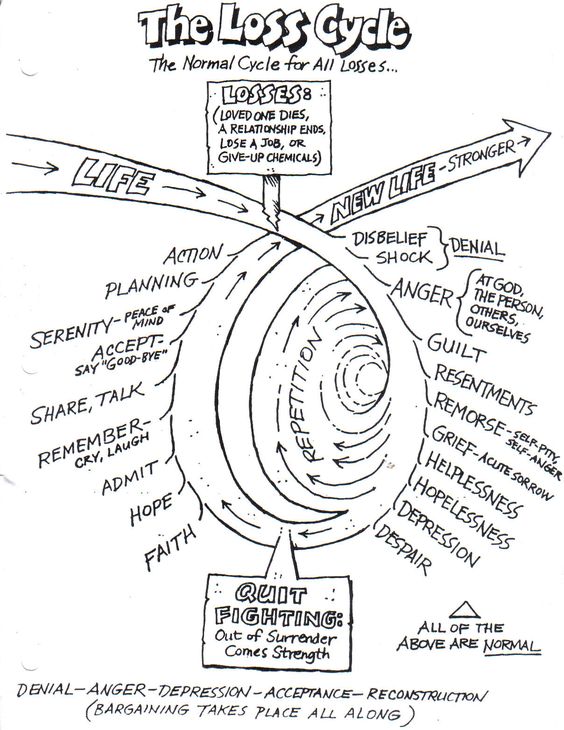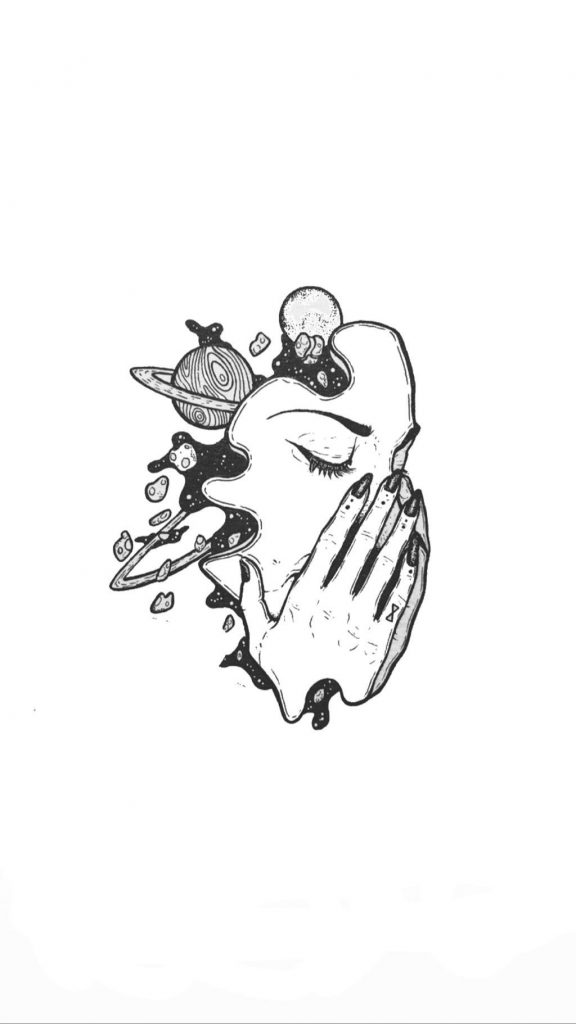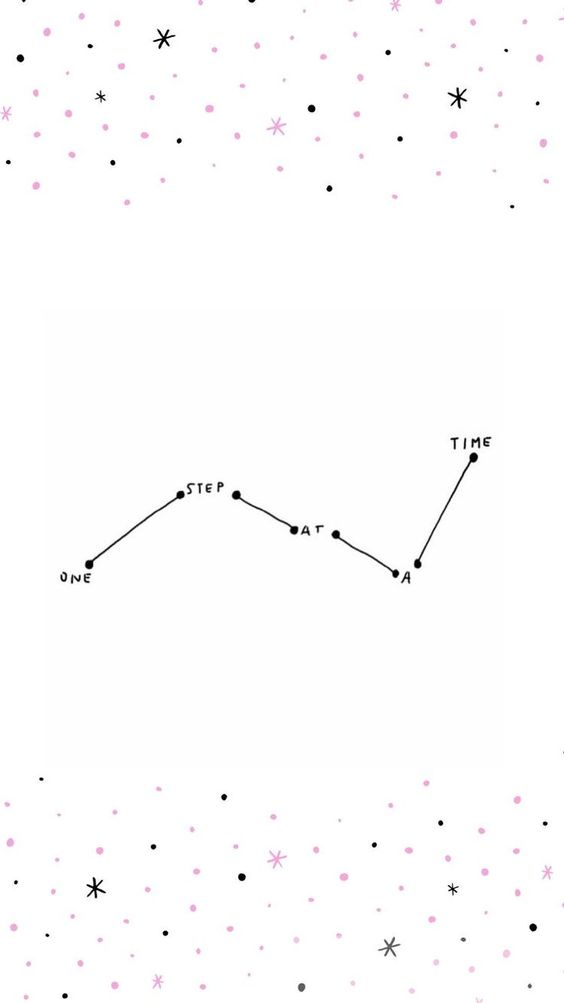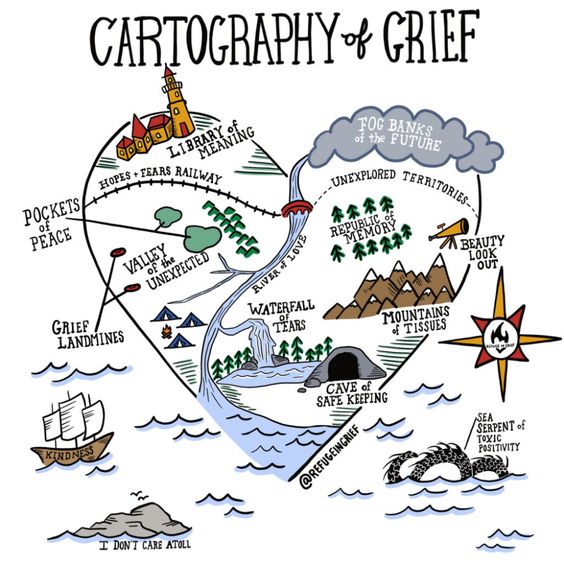
Dealing with grief as an Introvert

Dealing with loss and grief is extremely difficult regardless of your personality type. Grief is something that is brought on by different experiences of loss and is a very personal process. Introverts often face unique problems when it comes to grief simply due to their personality types. Understanding how introverts process such events deserves a deeper look.
WHAT IS GRIEF?
Grief is a natural, multifaceted, response you experience when you lose someone or something close to you. It is typically in response to someone passing away. However grief can also be experienced as a result of the loss of other close bonds and attachments, including:
- Divorce or relationship breakup
- Losing a job
- Loss of health
- Loss of financial stability
- A miscarriage
- Retirement
- Death of a pet
- Loss of a cherished dream
- Loss of a friendship
The “symptoms” of grief
The symptoms of bereavement are as unique as the individual who experiences it. Grief has both emotional and physical responses which are all part of the grieving process.
The intensity of our grief, how long it lasts, and our reactions to it differs from person to person. Some common symptoms include:

- Feeling sad or down
- Frequent crying
- Shock, denial, numbness
- Stress, anxiety, confusion, exhaustion
- Anger, guilt, shame, blame or even relief
- Loneliness, isolation and withdrawal
- Feeling or acting differently to usual
- Physical health problems – headaches, changes in eating or sleeping patterns
- Difficulty concentrating
- Not enjoying usual activities and hobbies
- Tension or problems with personal relationships
- Increased alcohol, smoking or drug use
- Feeling hopeless or like you can’t go on – thoughts of suicide or self-harm
I don’t particularly like referring to the reactions to grief as symptoms as it implies that is an illness, which it is not. Grief and the myriad of emotions and reactions that accompany it is part of life for us all. It is not something to be cured but rather something we must learn to cope with.
Difference between sadness and grief
As it turns out, sadness and grief are not the same, even though we tend to group them together in the same family of upsetting emotions.
According to J. John Mann, a psychiatrist from Columbia University, sadness is a part of grief: When we are sad, we want something to change.
“It’s a motivation to reestablish a relationship,”
John Mann
If we are sad to be separated from someone we love for a period of time, we’re even happier to see each other when we’re reunited.
Mann views grief, as a deep yearning, and said that sadness is a tool that we use to resolve our immediate bereavement into a more permanent memory of a lost loved one.
How is dealing with grief different as an introvert?
As introverts we have the tendency to spend a lot of time in our heads and this can cause the grieving process to be different for multiple reasons:
- Introverts tend to create very few, but deep connections – We don’t tend to have many close relationships, but when we form bonds they are often very deep. The loss of such connections therefore feel much more severe.
- Smaller social network – Due to the fact that introverts don’t have a large social network, the grieving process can be intensified as there are often no outlets for our emotions. This also means that your support network will also be smaller making prolonging the process of dealing with grief.
- Most introverts tend to be extremely private – Introverts can struggle to share anything personal about themselves, especially when it’s painful. They also often feel like they can deal with the grief by themselves. These behaviours can prolong the bereavement process.
- Overthinking – By nature introversion is synonymous with overthinking. This often magnifies the guilt stage of grief as introverts try and decipher everything in their minds as to what went wrong.
This is one of the most beautiful visual representation of loss and grief I have ever come across.
HOW TO COPE WITH GRIEF
Dealing with grief will look very different for each individual, but it has been shown that there are certain patterns that most people experience.
The Stages of Grief
The “five stages of grief” was introduced in 1969 by psychiatrist Elisabeth Kübler-Ross. Her studies were based on the feelings of patients facing terminal illness, but many have since generalised these stages to other types of loss.

- Denial: “This can’t be happening to me.”
- Anger: “Why is this happening? Who is to blame?”
- Bargaining: “Make this not happen, and in return I will ____.”
- Depression: “I’m too sad to do anything.”
- Acceptance: “I’m at peace with what happened.”
One thing to note is that these stages can often be interchangeable. I have personally felt like I have moved past the point of anger to bargaining and then find myself back at anger. Sometimes the feeling of depression might start lifting and then something happens to trigger the feelings of lossd and you are back at depression or even anger.
Dealing with grief is a non-linear process and the five stages of grief is a cycle not a to-do list. The five stages was originally a framework for people who are dying – and not those left behind so in reality they don’t assist as much as we might like to believe.
Closure should not be the goal
Jennifer Soos, a therapist who specialises in traumatic loss, argues that the whole idea of closure is in fact an unrealistic goal.
“Closure isn’t really the thing that people think it is,” she says. “The belief that it exists and ought to be a ‘goal’ of grief is simply not helpful.”

For more than a decade, she has been telling her grief support group to “let go of the notion of closure.” She states that it is healthier to work toward integration, which is the process of “figuring out how to integrate the experience into who we are and what that will look like moving forward.”
When her son passed away in 2004, Soos was forced to go through the process herself. She was plagued with the same questions we all face – “How was I ever going to simply be OK with the giant hole that was left in our family?”
She quickly realised that seeking closure or getting over his death was an impossible expectation, and that the real task was to integrate his loss into her life. So she sought ways to continue to parent him and honour his life. This, she says, was the key to finding peace again.
“It’s a very different process,” she says. “Yet so many people think they are expected to walk through the stages in a linear fashion because that is how you ‘do grief correctly.”
In other words, the grieving process is unique to each person.
Things that can help when dealing with grief
#1 Let yourself grieve
Exploring your emotions is an integral part of the healing process. Time spent alone can allow you to connect with your emotions so that you are better equipped to express them, which is another important part of the healing process. Listening to music or writing helps when dealing with grief, as well as expressing to a trusted family member, friend or health professional.
– Introvert tip: Try not to spend too much time alone exploring your emotions so that you don’t get stuck there. Don’t bottle up your emotions it is not conducive to the healing process.
#2 Let people help
It is important to spend time with supportive people. Explain to family and friends how you feel and what you would like them to do to help. Often others want to help but they do not know what you need or want; e.g. whether to talk about the loved person or not. Tell them. It can help to talk to a professional, or to talk to someone who has been through a similar experience, and understand what you are going through.
– Introvert tip: Everything in your body will yell at you not to do let people in, but it is essential that you do. I know you are strong and independent, but you can’t do it alone. You simply don’t have the perspective.
#3 Take care of your health
However difficult it might be at the time, make a conscious decision to get some regular exercise, eat healthy and make sure you get enough sleep. Give yourself a time out from the pain by doing things you enjoy, even if you don’t really feel like doing them. Try and get back to your healthy habits. Avoid excessive alcohol and drugs use, they only numb feelings and make it harder to heal.
– Introvert tip: Get outside and spend some time in nature. Change your physical environment so that your safe space doesn’t become your prison.

#4 Take your time
There isn’t a set time limit on dealing with grief, so try not to put pressure on yourself but putting a timeline on it. Don’t be influenced by others telling you to “move on” or “get over it”. Avoid making any big decisions until you can think more clearly.
– Introvert tip: Be patient with yourself. People might expect you to react in a similar way that they do, but introverts generally take a longer time to process things and that is okay.
#5 Let go of the guilt
Healing does not just mean “letting go” or “saying goodbye”. You may feel guilty about “forgetting” a person or thing and not want to move on. This is a normal part of healing. Don’t feel guilty about moving through your grief and trying to get back to your life.
– Introvert tip: Alleviate your mind from overthinking as it causes unnecessary guilt. Become more conscious of this part of your personality so that you can learn to differentiate between what’s reality and what’s been concocted in your very active mind.
#6 Know that you can get through this
Even if you feel like you can’t, you absolutely can survive a big loss. Take one step at a time and be patient with yourself. Set-backs will occur which is only natural. It will probably be one of the hardest things you’ll ever deal with, but you can heal.
– Introvert tip: Not many people might ever know of the pain you have survived in solitude, but the bonds you will form with the ones you let in will be something to cherish forever.
HOW TO HELP SOMEONE DEALING WITH GRIEF
Needless to say that supporting a loved one while they are dealing with grief can be challenging, and there is no one way to do so. Don’t let fears about saying or doing the wrong thing stop you from reaching out.
Grief is a very personal experience, and belongs entirely to the person experiencing it. You may believe you would do things differently, but this grief belongs to your loved one so follow his or her lead.
6 Ways to support your introverted loved one in grief

#1 Love them
The simplest thing you can do for a loved one that is grieving is to love them. Show up for them, let your actions know that you are there for them.
Kindness and pertinence will allow them to open up to you in their own time. Be willing to stand beside the gaping hole that has opened in your loved one’s life without flinching or turning away. It is okay not to have any answers. When love is your main priority the rest will follow suit.
#2 Listen, even in silence
Allowing your loved one to express their emotions without judgement is one of the healthiest things you can do for them.
Remember that grief is brought on by the loss of situations other than death and that you might not always know when your introvert is grieving. In such cases, listen to try and pick up the clues and deeper meaning that they might be expressing.
Don’t press when your introvert doesn’t feel like talking. Often, comfort for them comes from simply being in your company. If you can’t think of something to say, just offer eye contact, a squeeze of the hand, or a hug.
#3 Stay present and state the truth
It’s tempting to make statements about the past or the future when your friend’s present life holds so much pain. You cannot know what the future will be, for yourself or your friend — it may or may not be better “later.” That your friend’s life was good in the past is not a fair trade for the pain of now. Stay present with your friend, even when the present is full of pain.
It’s also tempting to make generalised statements about the situation in an attempt to soothe your friend. You cannot know that your friend’s loved one “finished their work here,” or that they are in a “better place.” These future-based, omniscient, generalised platitudes aren’t helpful. Stick with the truth: this hurts. I love you. I’m here.
#4 Offer practical help by anticipation
Are there recurring tasks or chores that you might do? Do not say “Call me if you need anything,” because your introvert will not call. Not because they do don’t need help.
Instead, make concrete offers: “I will be there at 4 p.m. on Thursday to bring your recycling to the curb,” or “I will stop by each morning on my way to work and give the dog a quick walk.” Be reliable. Supporting loved in small, ordinary ways are all tangible evidence of love.

#5 Do not try to fix the unfixable.
It is a natural response when we know someone is upset to want to fix things for them. The reality is that you can’t ‘fix’ their grief.
The pain itself cannot be made better. Try not so say anything that tries to fix the unfixable, and you will do just fine. It is an unfathomable relief to have a friend who does not try to take the pain away.
#6 This is not about you.
Being with someone in pain is not easy. You will have things come up — stresses, questions, anger, fear, guilt. Your feelings will likely be hurt. You may feel ignored and unappreciated.
Your friend cannot show up for their part of the relationship very well. Please don’t take it personally, and please don’t take it out on them. Please find your own people to lean on at this time — it’s important that you be supported while you support your friend. Introverts dealing with grief will most certainly retract into their shells.
FINAL THOUGHTS ON DEALING WITH GRIEF AS AN INTROVERT
Introverts often grieve in silence, it is our natural response to retract back into our shells. If you isolated and don’t have the support network around you that you might need, you can always out to a professional. Seek online advice or counselling. As we have discussed – dealing with grief is very complex so it it certainly something to be researched and understood further.
If you are reading this and currently are grieving, I am truly sorry for your pain and I really hope that this might help in some way.
You May Also Like

Simple tips for creating healthy habits
January 17, 2020
INFJ Personality Type: The Darker Side
January 14, 2020



7 Comments
Khelie Pascal
I’m completely alone. I’ve lost everyone but one child that can not help me but instead needs help himself. No family, no friends, most have died recently or a few are just gone. Idk what to do.
aliennation
Hi Khelie,
I’m so very sorry for only now seeing your comment. I know it’s been quite a while, but how are you doing?
P.S. what a beatiful name you have.
Sending love,
Esté
Ronda
I lost my husband 2021. I’ve made MANY bad mistakes. Sold off most everything including our home. Lost all friends and most family. I have just realized that I am stuck in ‘anger’ stage and with that lost everyone. Now totally lost and can not figure out how to move past anger. Moved innwith daughter which now has almost severed our relationship. No understanding from anyone.
Lost
aliennation
Hi Ronda,
I’m very sorry for your loss. Thank you for getting in touch and sharing your experience, that’s actually one of the best things you can do – to reach out and connect with people who can relate with what you might be going through. Grief can be very isolating for so many different reasons. Have you considered speaking with a professional at all? The only reason I ask is because I personally found that instrumental in learning to not only move on per say, but learning how to live with the loss. It would always be my first recommendation to anyone.
My second recommendation would be to really simplify and get back to basics. Grief can be extremely overwhelming, which means we often don’t know where to start. So we have to simplify and take every small win. One of the very best ways we can do this is by using the power of habits to help “hack” our progress. For example, making a habit of going for a simple 5min walk once a day. No more, no less – that simple. That’s just one example of a tiny habit you can use to start building momentum to get from where you are now to where you want to be. These small habits have drastic flow on effects in all other aspects of our lives. I wrote a very short, easy to read, book on this topic that I would love to share with you for free. I will leave the link below for you and leave it up for a few days, so let me know once you’ve downloaded it.
https://we.tl/t-uGN1xfeoYn
I hope that is a small help and a small start for you to be able to move in the direction you want to. Please keep in touch as well!
Margaret
Thank you. My husband died in March 2022 and it’s now December 2022. I was his sole caretaker and worked full time. He had MS and kidney failure. Dialysis led to his final 3 months and even though we knew his final days were coming, we thought we were as prepared as we could be. We didn’t address my mental well-being during, or how I would handle it afterwards. Now I must do that alone. Being a true introvert, and shy to boot, life has become, well, I just don’t have the words to describe it. I stumbled upon this article through Pinterest of all places and I’m so glad I did. Thank you. I’ve bookmarked the site and look forward to exploring and learning more. I can’t say it enough, so, once again, thank you.
aliennation
Hi Margaret,
My sincerest condolences for your loss and equal apologies for only now seeing your heartfealt and volnurable share. I know it’s been quite a while since you shared this, but I am so incredible humbled that this small piece of content was able to help perhaps even in the smallest way. I would love to hear from you to see how you managed to deal with your grief and how you are doing now.
Sending you all the love in the world,
Esté
Kathleen Tucker
Thank you!